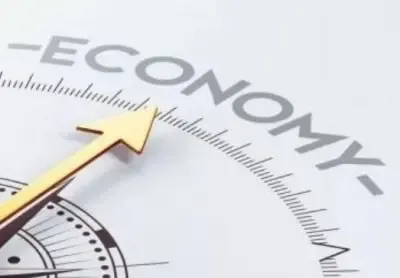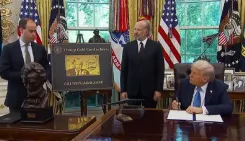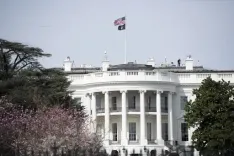Is the Global Economic Outlook Deteriorating, Yet India Stands as a Growth Beacon?

Synopsis
Key Takeaways
- Global economic outlook has worsened due to nationalism and uncertainty.
- India is emerging as a key growth driver in South Asia.
- Economists expect weak growth in the US through 2025.
- AI has potential for economic transformation but poses risks.
- Strategic actions are essential for long-term resilience and growth.
Geneva, May 29 (NationPress) The global economic situation has deteriorated since the beginning of the year, driven by rising economic nationalism and fluctuating tariffs that create uncertainty. However, South Asia, particularly India, is projected to be a significant growth engine, as highlighted in the latest report from the World Economic Forum (WEF).
The ‘Chief Economists Outlook’ indicates that a substantial majority (79 percent) of surveyed economists perceive current geoeconomic shifts as indicative of a major structural change in the global economy rather than merely a temporary disruption.
In the midst of trade disputes and increasing nationalism, economists forecast a challenging year ahead for the global economy.
Nevertheless, growth prospects vary markedly by region, with South Asia and India showing the most optimism, as 33 percent of economists anticipate robust or very robust growth this year.
The outlook for the United States is grim, with 77 percent of chief economists expecting weak or very weak growth through 2025, coupled with high inflation and a declining dollar. In contrast, there is cautious optimism about Europe, primarily due to expected fiscal expansion in countries like Germany. Meanwhile, the outlook for China remains subdued, with economists split on whether it will achieve its goal of 5 percent GDP growth this year, according to the WEF report.
“Policymakers and business leaders must address the escalating uncertainty and trade tensions with enhanced coordination, strategic agility, and investments in transformative technologies like artificial intelligence,” stated Saadia Zahidi, Managing Director of the World Economic Forum. “These initiatives are crucial for navigating today’s economic challenges and ensuring long-term resilience and growth.”
Global uncertainty is perceived to be exceptionally high by 82 percent of chief economists. While a slight majority (56 percent) predicts an improvement in conditions over the next year, significant worries remain. Nearly all economists (97 percent) identify trade policy as an area of utmost uncertainty, alongside monetary and fiscal policies. This uncertainty is anticipated to impact vital economic indicators, including trade volumes, GDP growth, and foreign direct investment.
Most chief economists foresee that businesses will respond to this uncertainty by postponing strategic decisions, thus raising the risk of recession. Concerns regarding debt sustainability are also escalating, with 74 percent of respondents identifying it as an issue for both advanced and developing economies. A vast majority expect governments to meet increasing defense spending demands through heightened borrowing, which could limit investments in public services and infrastructure.
Artificial intelligence (AI) is expected to catalyze the next wave of economic transformation, unlocking significant growth potential, but it also poses serious risks. Almost half (46 percent) of chief economists predict that AI will contribute a modest boost of 0-5 percentage points to global real GDP over the next decade. Key factors driving this growth include task automation, faster innovation, and worker enhancement.
Despite its promise, there are concerns: 47 percent of economists anticipate net job losses in the next decade, compared to just 19 percent expecting gains.
Among the most significant risks highlighted by respondents is the potential misuse of AI for disinformation and destabilizing society. Other critical risks include the increasing concentration of market power and disruption of existing business models.
To fully leverage AI’s potential, chief economists stress the urgency of decisive action from both governments and businesses. For governments, priorities include investing in AI infrastructure, encouraging adoption across crucial industries, facilitating AI talent mobility, and investing in skills development and redeployment.
For businesses, the focus should be on adapting core processes to incorporate AI, retraining staff, and equipping leadership to guide AI-driven transformation, as noted in the report.









